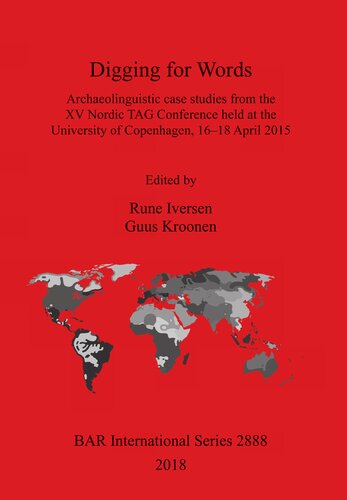

Most ebook files are in PDF format, so you can easily read them using various software such as Foxit Reader or directly on the Google Chrome browser.
Some ebook files are released by publishers in other formats such as .awz, .mobi, .epub, .fb2, etc. You may need to install specific software to read these formats on mobile/PC, such as Calibre.
Please read the tutorial at this link: https://ebookbell.com/faq
We offer FREE conversion to the popular formats you request; however, this may take some time. Therefore, right after payment, please email us, and we will try to provide the service as quickly as possible.
For some exceptional file formats or broken links (if any), please refrain from opening any disputes. Instead, email us first, and we will try to assist within a maximum of 6 hours.
EbookBell Team

4.3
88 reviewsThis volume offers a selection of case studies on the interface between linguistics and archaeology. These case studies were presented at a session titled 'Archaeology and Language' at the XV Nordic Theoretical Archaeology Group (TAG) conference, held at the University of Copenhagen in April 2015. The main goal of the session was to present new and ongoing studies that combine aspects of archaeology and linguistics and theoretical perspectives on the field of archaeolinguistics, and to encourage new, fruitful studies on archaeology and language. The questions raised in this session concern the future of archaeolinguistic research. What can archaeologists and linguists learn from each other's disciplines? What kind of research questions are particularly suitable for future integrated studies?